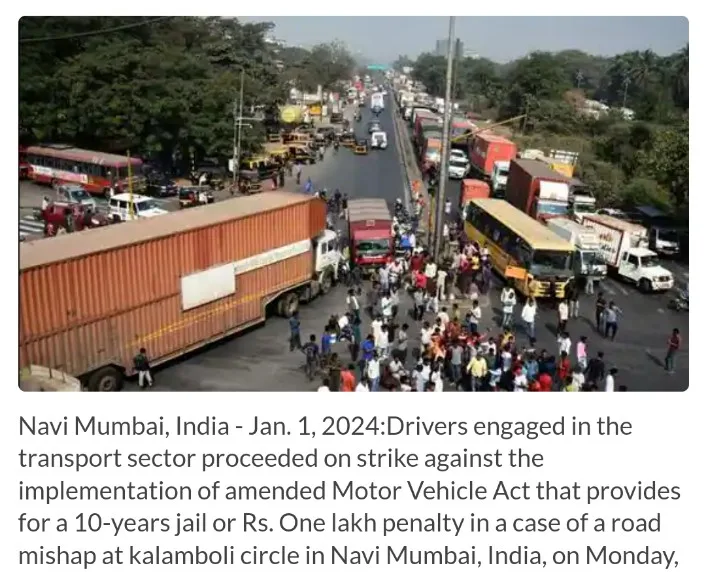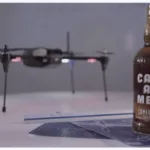Mumbai: Over 70% of the estimated 1.20 lakh trucks, tempos, and containers in the Mumbai Metropolitan Region (MMR) remained off the roads on Monday as truckers, taxi, and bus operators initiated a nationwide strike. The protest aims to oppose the provision of a ₹7 lakh penalty and a 10-year jail term for hit-and-run cases under the recently passed Bharatiya Nyaya Sanhita.
The All India Motor Transport Congress argues that these provisions, yet to come into force, could lead to undue harassment and must be recalled. The three-day strike is anticipated to impact the distribution of fuel and disrupt the supply of fruits and vegetables in the coming days.
In MMR alone, there are close to 1.50 lakh drivers of trucks, tempos, and heavy vehicles, with 35% of these vehicles carrying essential commodities, including petrol and LPG. The All India Motor Transport Congress estimates losses of ₹120-150 crore in MMR from just one day’s strike.
Outside MMR, the strike has partially affected Maharashtra, Madhya Pradesh, Gujarat, Haryana, Punjab, Uttar Pradesh, Himachal, Rajasthan, and Bihar. Cities like Indore, Surat, and Ambala witnessed widespread driver protests. In Punjab, around 7 lakh trucks went off the road.
Transport unions in Madhya Pradesh reported around 10,000 private buses, trucks, and taxis not operating on Monday, impacting public transport. Long queues at fuel stations were observed in several districts as supplies started drying up. The protesting truckers are demanding the withdrawal of the stringent hit-and-run provisions introduced by the Bharatiya Nyaya Sanhita.
Before these provisions, the punishment for causing death by negligence was two years under Section 304A of the Indian Penal Code (IPC). The truck owners’ association claims that, regardless of culpability, it is almost always the driver of the larger vehicle who is booked. The truckers argue that the new provisions are unfair, and they won’t load fuel or carry fruits and vegetables until the amendment is withdrawn.
While the immediate impact of the strike was not fully apparent on day one, concerns about potential shortages of petrol and diesel loom if the strike continues over the next two days. Dealers and pump owners estimate a significant impact on fuel availability if the strike persists.







